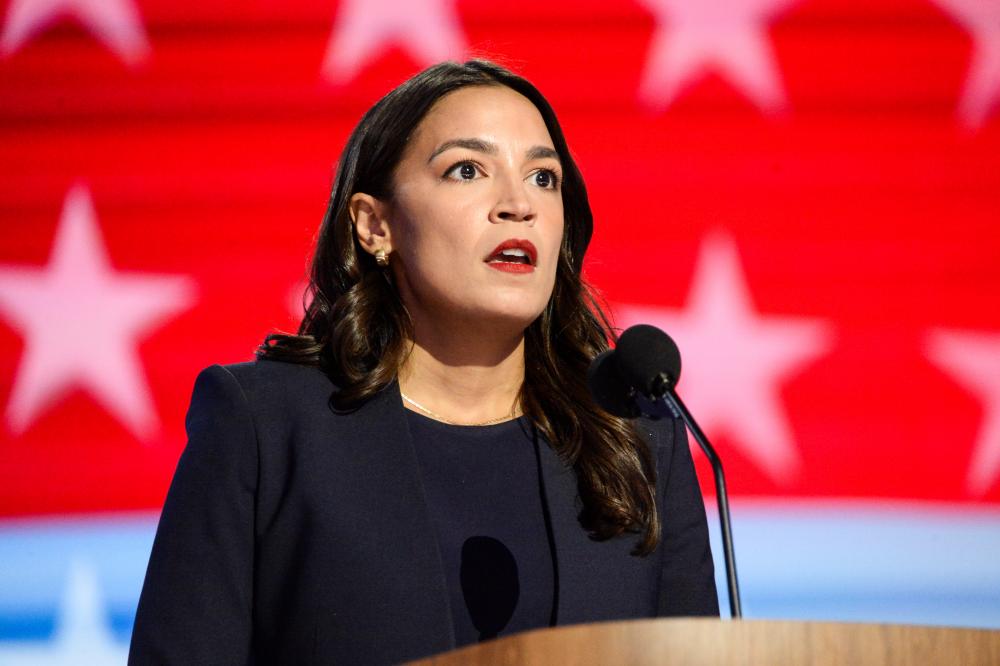The recent U.S. election highlighted the complexity of American voter behavior, particularly the phenomenon of split-ticket voting that saw some citizens supporting both Donald Trump and progressive Democrats like Alexandria Ocasio-Cortez. In the Bronx, a diverse community with significant Black, Asian, and Latino demographics, Trump’s support surged by 11 points compared to 2020, while Ocasio-Cortez secured nearly 69% of the vote in her congressional race. This vote-splitting pattern reflects a broader discontent among voters, who are eager to challenge a perceived stagnant two-party system that fails to address their concerns. Despite the stark differences in ideology, some voters view both Trump and Ocasio-Cortez as anti-establishment figures advocating for change.
The sentiment among voters is that both leaders, despite their divergent views, resonate with their shared image as outsiders pushing against a political establishment focused on corporate interests. Individuals cited issues like the economy, immigration, and democratic integrity when explaining their support for both candidates. For instance, comments from voters illustrate a belief that Trump’s policies may be more beneficial for economic security, while Ocasio-Cortez is seen as a champion of democracy and social issues. In a post on social media platform X (formerly Twitter), Ocasio-Cortez expressed interest in understanding this unique intersection of support, probing her followers for insights into their voting choices.
The appeal to anti-establishment sentiments is not confined to the Bronx; it was echoed in results from across the nation. Although Republicans secured control of the presidency and the Senate, the House of Representatives remained tightly contested. Analysts noted that many voters are seeking leaders who challenge the status quo and can articulate bold, transformative agendas. Political observers like Jasmine Gripper from the New York Working Families party emphasized that both Trump and Ocasio-Cortez symbolize a rejection of traditional politics, despite their differing methodologies and ideologies.
Historically, Trump recognized Ocasio-Cortez’s political potential early on, suggesting that his election invigorated progressive movements within the Democratic Party. Their mutual recognition positions them as interesting political foes, albeit with contrasting paths. Their dynamic illustrates the stark dichotomies present within American politics, where they continuously confront each other in media discourse, each leveraging the other’s notoriety to consolidate their political identities. Such rivalry has helped maintain their relevance, with Ocasio-Cortez often using provocative stunts to draw media attention and further her agenda, aligning her messaging with key progressive issues.
However, the performance of the ultra-progressive faction of the Democratic party underscores challenges faced under the more centrist Biden-Harris administration. Although influential, the Squad, which includes Ocasio-Cortez, has seen setbacks, with membership losses amid broader electoral changes. While Ocasio-Cortez has largely supported the current administration, many within her following express a desire for a shift towards more populist economic policies and the cultivation of charismatic leaders who can authentically resonate with voters.
The election results summon deliberation among Democrats about their future strategy. The appeal of both Trump and Ocasio-Cortez as valid representatives of change highlights a yearning for authenticity in leadership. Yet, the concerning aspect for Democrats is the dropout in voter participation, evident with individuals like Carlos Thomas from the Bronx expressing support for both candidates but failing to cast their votes. The underlying query remains: will the rising trend of split-ticket voting signal a more extensive shift in American political dynamics, challenging established party structures and norms in the coming years? The resolution to this dilemma will shape the electoral landscape and significantly impact how political parties position themselves moving forward.

